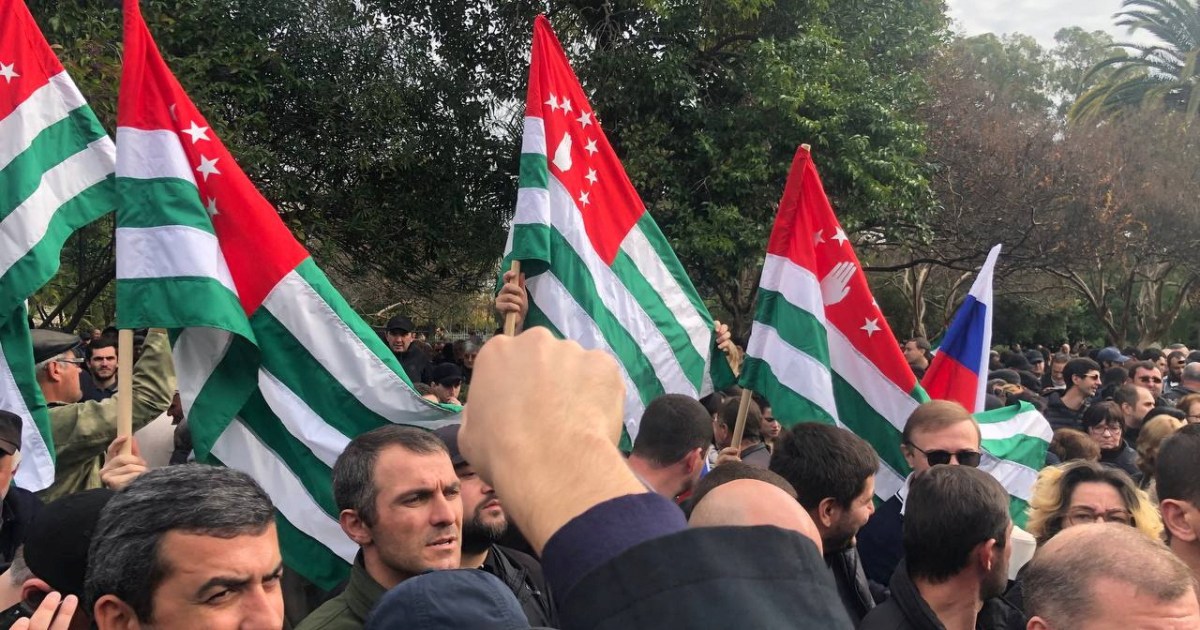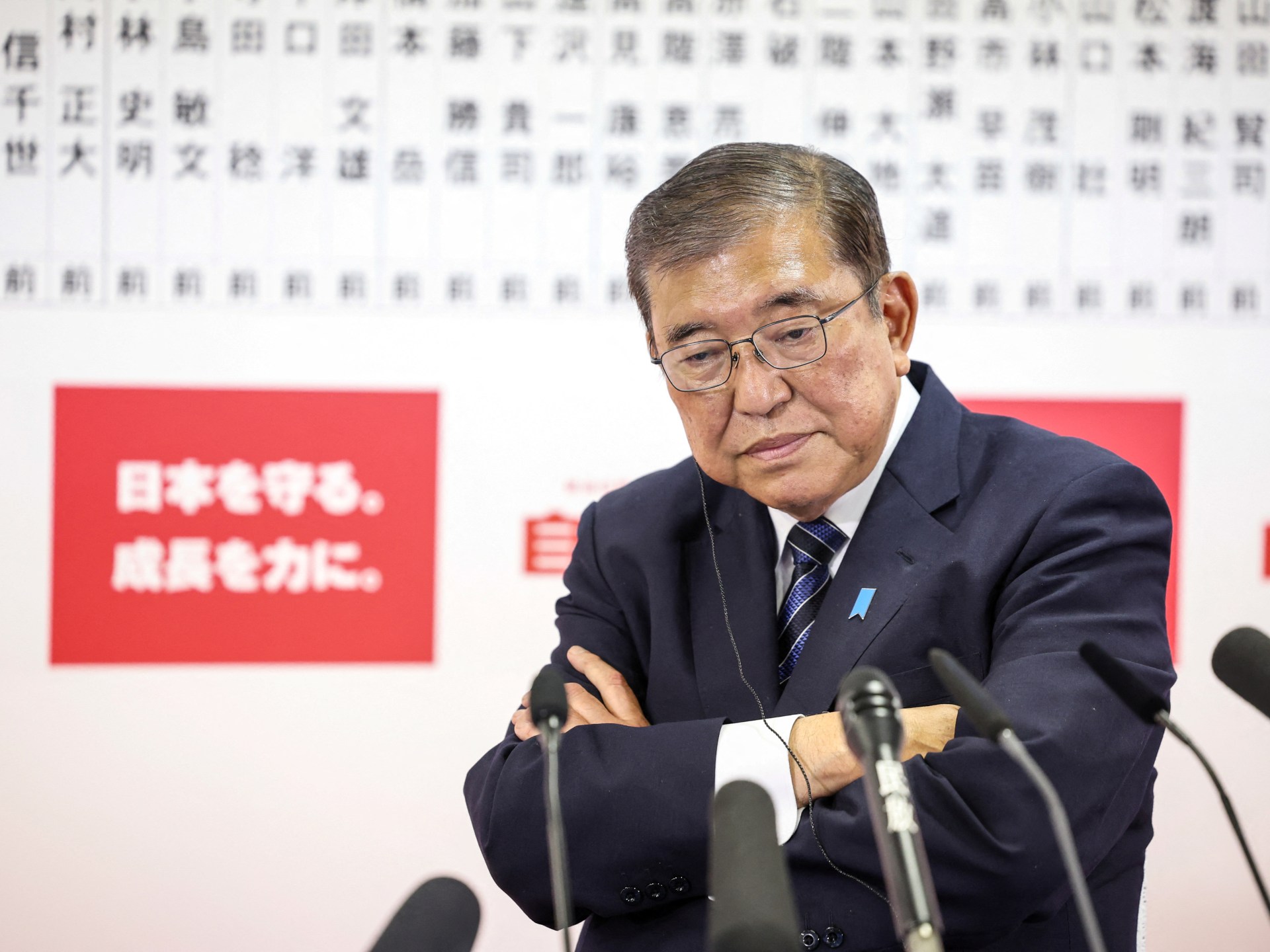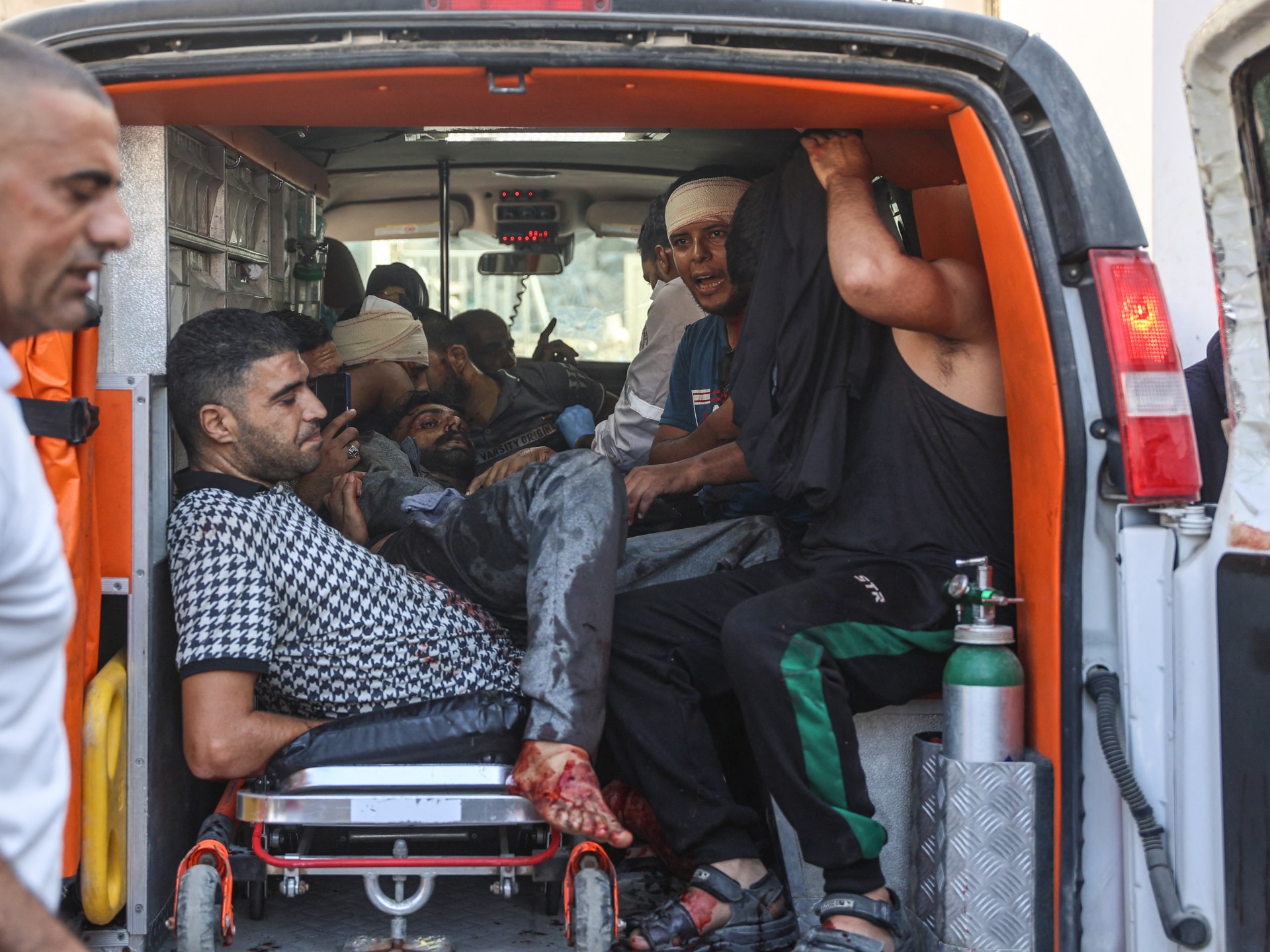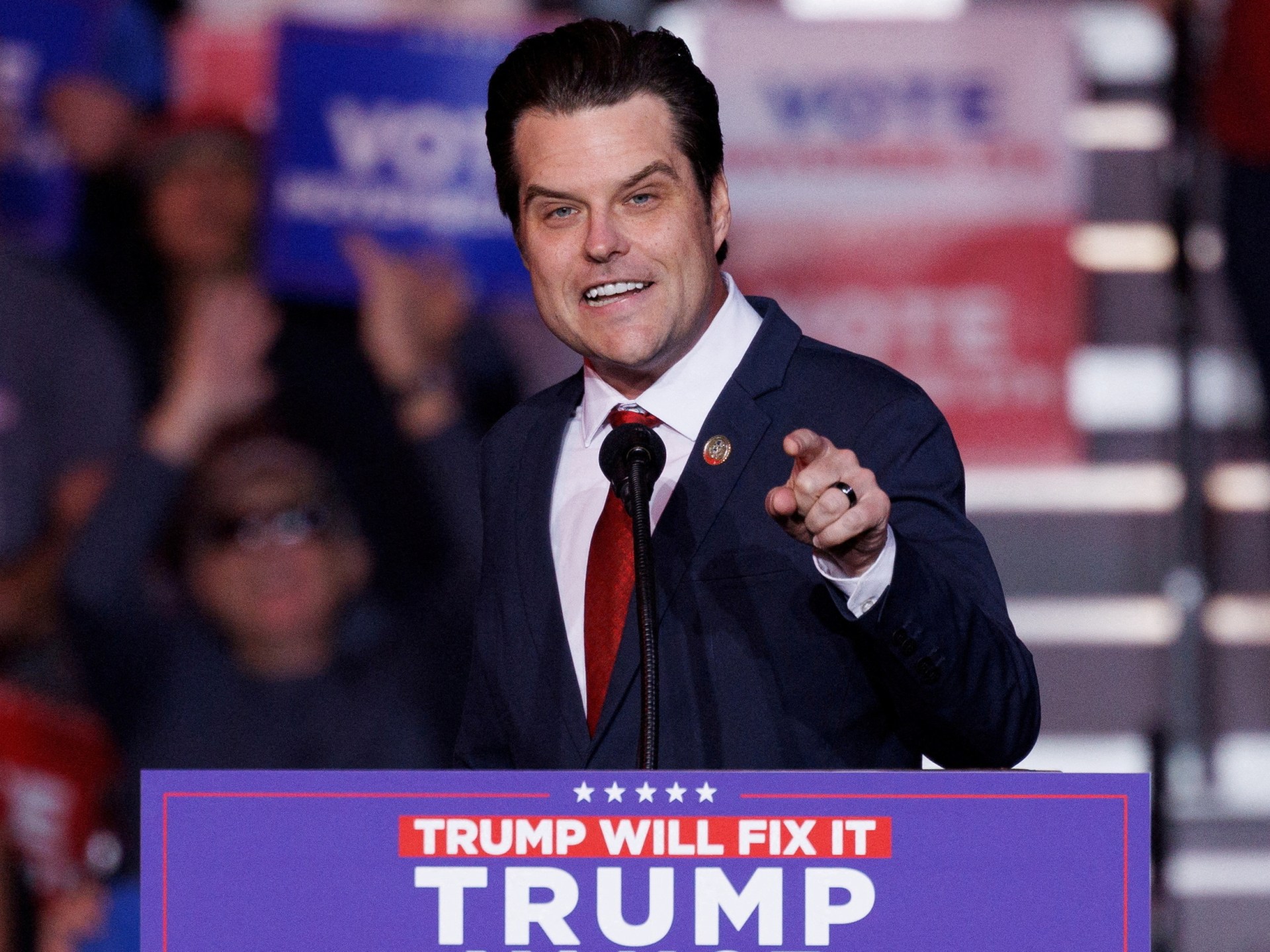

Protesters opposing a proposed measure that would allow Russians to buy property in the Georgian territory of Abkhazia have stormed into the secessionist region’s parliament building and clashed with police.
The parliament in the regional capital of Sukhumi was set to discuss ratifying the measure on Friday but postponed the session as the demonstrators gathered outside the gates of the government compound that includes the legislature’s building and the presidential office.
Protesters used a truck to smash through the metal gates surrounding the parliament. Video from the scene appeared to show people climbing through windows after prying off metal bars and chanting in the corridors.
Emergency services said at least eight people were taken to hospital.
Eshsou Kakalia, an opposition leader and former deputy prosecutor general, said that the parliament building was under the control of the protesters.
“We will now seek the resignation of the current president of Abkhazia,” he was quoted by Russia’s Interfax news agency as saying. Protesters also broke into the presidential administration offices located in the same building as the parliament.
The presidential administration said in a statement that authorities were preparing to withdraw the investment agreement with Russia that some Abkhaz fear will price them out of the property market. Abkhazia is a popular tourist destination for Russians.
Most of Abkhazia broke away from Georgia in fighting that ended in 1993, and Georgia lost control of the rest of the territory in a short war with Russia in 2008.
While most countries recognise Abkhazia as part of Georgia, Russia recognises Abkhazia as independent. However, many Abkhazians are concerned that the region of about 245,000 people is a client state of Moscow.
On Friday, Abkhazian lawmakers had been set to vote on the ratification of an investment agreement signed in October in Moscow by Russian Economy Minister Maxim Reshetnikov and his Abkhazian counterpart, Kristina Ozgan.
Abkhazian opposition leaders say the agreement with Moscow, which would allow for investment projects by Russian legal entities, would price locals out of the property market by allowing far more Russian money to flow in.
The opposition said in a statement that the protesters’ actions were not against Russian-Abkhazian relations.
“Abkhazian society had only one demand: to protect the interests of our citizens and our business, but neither the president nor the parliament have heard the voice of the people until today,” Interfax cited the statement as saying.
Earlier this week, Abkhazia’s self-styled president, Aslan Bzhania, held an emergency security council meeting after protesters blocked a key highway and rallied in central Sukhumi to demand the release of four activists.
The activists, who were subsequently freed, had been detained for opposing the passage of a law regulating the construction industry which references the Russian-Abkhazian agreement.
In 2014, demonstrators stormed the presidential headquarters, forcing then-leader Alexander Ankvab to flee. He later resigned over accusations of corruption and misrule.
Opposition leader Raul Khadzhimba, elected following the unrest in 2014, was himself forced to step down in 2020 after street protests against disputed election results.
Related News

Photos: Jon Jones sends Stipe Miocic into retirement in front of Trump

Japan’s ruling coalition loses majority in blow to new PM Ishiba

Photos: Israeli strikes kill 95 Palestinians across Gaza, hospital targeted


